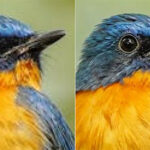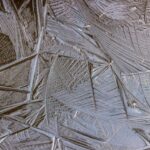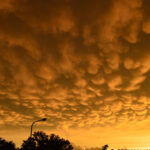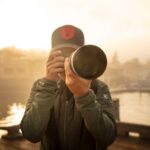Low light photographer Serge Ramelli shares some elementary beginner photography mistakes that most photographers tend to make at some point:
1. Shooting at the Wrong Time of Day

Time of day makes a huge difference.
Well, you probably know where this is going. Light. Shooting at the wrong time of day means not utilizing the sensational golden light at the golden hour or the deep colors of the blue hour. You can get away with shooting during the day, but if you make it a point to come back during sunset or sunrise, you’re practically guaranteed much better imagery.
2. Shooting Without a Neutral Density Filter
Without an ND filter you get shots like this:

Without a ND filter
Flat water, everything frozen in time. With an ND filter, you can get potentially mind blowing shots like this:

With a ND filter
The moving water and clouds create a foamy effect when you use a long exposure.
Ramelli recommends an exposure of at least one to two seconds. Yes, you may be able to replicate some of the effects in Photoshop, but nothing beats the convenience of getting most of the final shot in-camera.
3. Shooting at Night Without a Tripod
Shooting at night without a tripod is a recipe for disaster. You won’t get a sharp photo. And you’ll overcompensate for the lack of light by upping the ISO, and in the process you’ll get a lot of digital noise.
The simple solution is to use a tripod. With a tripod you can shoot at ISO 100 and get a sharp noise-free photo. Plus, with a long exposure you can make people in the frame vanish.
4. Not Using Composition for Storytelling
We’re all guilty of not putting much thought into composing our images sometimes. The result is that our images are too cluttered—too busy to decipher any serious meaning.

Cluttered image
Ramelli used an alternative approach. He walked around and found an angle which conveyed a more meaningful representation, focusing on the architecture rather than the people around it.
Here’s another example:

Original composition

A more thoughtful composition
5. Shooting in JPEG Rather Than RAW
For one reason or the other, a majority of beginners prefer to shoot in JPEG mode. A RAW file is a digital negative and that means it gives you more options. You can make more adjustments to your RAW frames, including color balance, contrast, and tonal adjustments. A JPEG file limits your post-processing choices.
Here are the comparative results:

RAW

RAW file after basic adjustments

JPEG file after basic adjustments
What other mistakes do you see photographers making?
Like This Article?
Don't Miss The Next One!
Join over 100,000 photographers of all experience levels who receive our free photography tips and articles to stay current:









No.6
Not composing the shot properly and cropping the top off a building or spire.
Very amateurish for a professional photography ;-)
You realize your “with tripod” exposure has a crooked horizon, right? (The more gear you have, the more places for problems to creep in!)
I have had ablsoutely no luck shooting RAW. If i set the camera to “RAW + JPG,” I get two identical JPGS when I upload (if I have the codex installed–otherwise I get a JPG and something unreadable). If I set the camera to RAW alone, and my computer has the NEF codex, I get something Explorer can read a thumbnail of, but none of my photo editing programs (or Windows Picture and Fax Viewer, for that matter) can open.
This is but another in an endless series of uneeded ‘photography’ articles. What if you don’t want a long exposure image? What if you don’t want a fucking golden hour photo? It doesn’t make it a mistake. Photographers (meaning anyone who wants to take pictures) should be able to express and experiment without reading shit like this and feeling like they are fucking up.